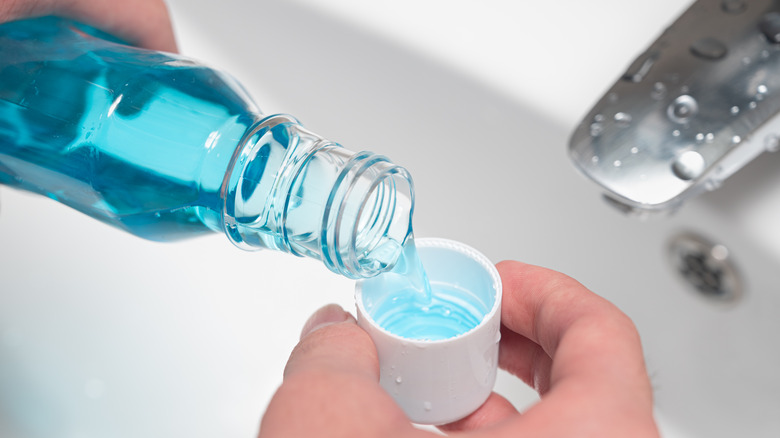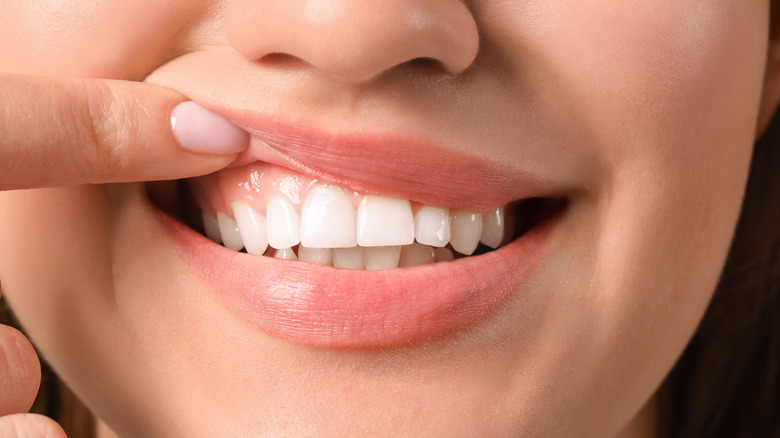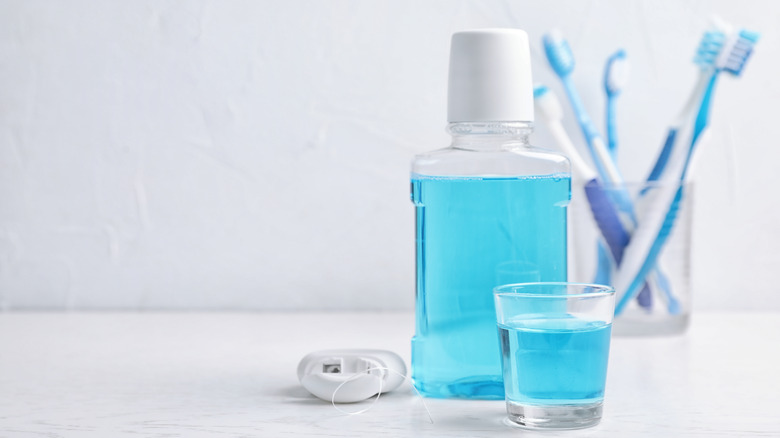Side Effects Of Using Mouthwash Every Day
A fresh minty breath can leave a great first impression. So how do we help our breath achieve such a pleasant fragrance? Mouthwash. Under the chemical name "chlorhexidine gluconate," mouthwash is considered a quick fix when it comes to dental hygiene (via DailyMed). But there's more — your mouthwash might be more than just a medium to help you freshen up your breath.
According to research published in 2017, chlorhexidine (CHX) is the most effective antiseptic mouthwash (via Electron Physician). It also protects the gums by reducing inflammation and killing harmful bacteria. Making mouthwash a part of your regular dental hygiene routine can also help cut down on cavities. In addition, mouthwash that comes with fluoride is effective in preventing tooth decay and crumbling (via Journal of Dental Research, Dental Clinics, Dental Prospects).
Mouthwash can help replace bad breath with minty breath, but there's a catch. Mouthwash cannot be considered a replacement for flossing and brushing teeth twice a day (via Healthline).
What are the side effects of using mouthwash every day?
Mouthwash contains antiseptics like methanol, alcohol, and eucalyptol, which reach down into the crevices of your teeth and the back of your mouth to kill bacteria (via Healthline). But are there any side effects of using mouthwash every day?
While using mouthwash may prove beneficial to your oral health, its long-term use may be harmful. According to experts at DailyMed, mouthwash that contains chlorhexidine gluconate can cause staining of the teeth and other oral surfaces when used for long periods of time. It also increases the formation and buildup of calculus — a plaque deposit — and alters taste perception.
Oral irritation and allergic reactions are also commonly reported side effects of mouthwash use. Moreover, dry mouth, mouth ulcers, and gingivitis have also been associated with chlorhexidine-based mouthwash usage.
There are other potentially harmful side effects associated with everyday mouthwash use as well.
Watch out for these other side effects of daily mouthwash use
According to experts at EverydayHealth, several oral rinses contain certain amounts of alcohol, which is not ideal if you have canker sores. Sores can be an indicator of underlying health issues, and high alcohol and fluoride concentrations can cause them more harm than good.
A 2019 study published in the medical journal, Therapeutic Advances in Drug Safety, associated the long-term use of mouth rinses with several adverse side effects. Of the many side effects noted by subjects, one common one was the experience of functional alterations such as abnormal oral sensation.
The American Dental Association has even banned certain mouth rinses containing alcohol, as they have been linked to instances of oral cancer. Experts also suggest that children under the age of 6 should not use mouthwash (via Healthline). In addition, those in recovery from alcohol addiction may also want to avoid using alcohol-based mouthwash.



